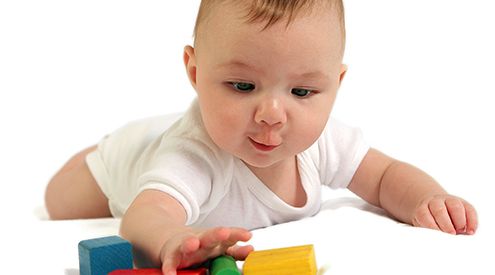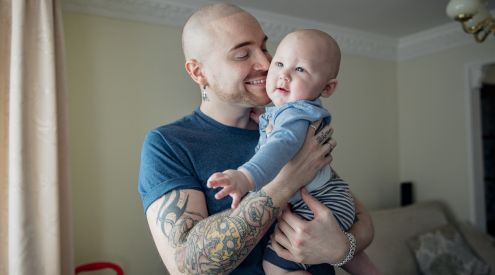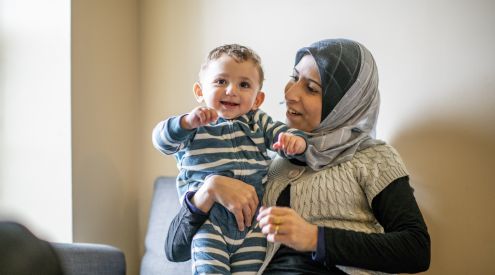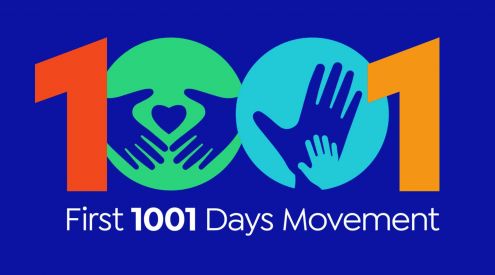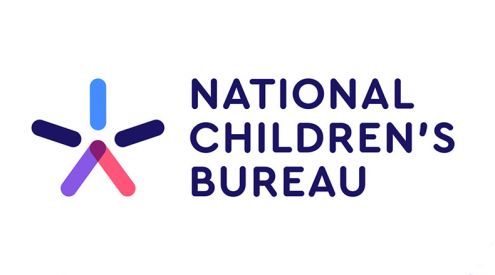Study content
Data collection
Data collection involved interviews with mothers and fathers. Saliva samples from parents and infants for DNA extraction were collected from an experimental sub-group to test the impact on participation.
The feasibility of innovative measures to capture babies’ development was also tested. These comprised neuro scientific measures (looking-time task, eye tracking, mobile EEG to measure brain activity, together with use of an actimetry device), and measurement of the early language environment (through placement in the home of a LENA recording device).
We also tested additional infant biosamples (hair samples) and infant anthropometry (weight, length, head circumference and adiposity). The feasibility of collecting these specialist objective measurements using trained fieldwork agency staff was assessed via small scale field tests, separate to the main data collection.
The study design will enable linkage to electronic and other administrative records of babies and parents as well as to geo-environmental data, which can provide information on environmental and other conditions in the places they spend time, including homes, childcare locations, and hospitals.
Questionnaires
Parents were asked about their baby’s health and growth, behaviour and development, sleep, diet and activities they do with their child. They were also asked about their home and family, including other children and their partner/other parent, their work situation and family finances, health and wellbeing, parenting approach and relationship with their baby, relationship support and services received, and childcare arrangements.
Both mothers and fathers were invited to interview, including those who live apart from their child’s other parent. Each parent was interviewed separately.
One parent was asked to complete a 60-minute interview in person with an interviewer. This longer interview was recommended for the parent who spends the most time with the baby. In most families, this was the child’s mother. There were options to complete the interview by telephone and by video call if an in-person interview was not possible.
The other parent living with the baby, usually the child’s father, was asked to complete a 30-minute interview, either in-person with an interviewer or online. This interview was shorter because some questions only need to be asked once per baby or per household.
Parents who lived apart from their baby, usually the fathers, were asked to complete a separate 40-minute interview. This interview could also be completed by telephone or by video call.
Resident partners of parents, including those who live apart from the baby, were also invited to be interviewed.
When no parents took part at an address, an invite was sent for one parent to take part in a 40-minute non-response web survey.
Download the Early Life Cohort Study final questionnaire (February 2024, PDF)
Representativeness and inclusion
The study design focuses on maximising participation of traditionally ‘less often heard’ populations.
In England, there were sample boosts for babies born into disadvantaged and ethnic minority families (Black Caribbean, Black African, Pakistani and Bangladeshi). There were further boosts of births in Scotland, Wales and Northern Ireland. We used experiments to test the effectiveness of different levels of incentives for taking part.
We engaged fathers into the study, including those living in their own households.
We have also worked with experts to understand how best to engage babies who are extremely vulnerable, including children born into care. Findings and recommendations from these expert discussions can be read in this Recommendations for next steps report (October 2024, PDF).
Public engagement
The project team has undertaken careful public engagement with parents of children and young people to ensure acceptability of the proposed sampling, data collection and record linkage approaches. The public engagement was designed to enable individuals’ voices to be heard and acted upon in the design of the study, and to help ensure the study serves the needs of the people it represents.
In addition, the project team carried out extensive public engagement and consultation with policy and practitioner networks and with academic data users to determine evidence needs and scientific priorities for the feasibility study.
Further information and reports can be found on our Public engagement page.





